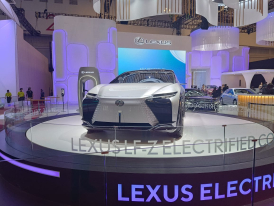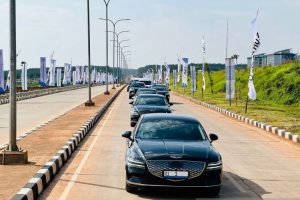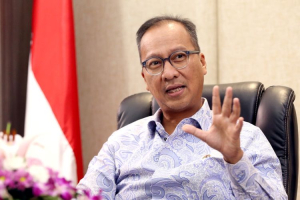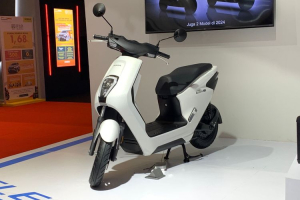Challenges, opportunities in developing hydrogen-powered vehicles in Indonesia
Published on 27/03/2024 at 04:26 GMT+7 Reading time
State energy companies have been proactive in supporting the establishment of ecosystems for hydrogen-based vehicles in Indonesia, yet there are still challenges in presenting hydrogen vehicles on a large scale in the country.
Companies, such as PLN Indonesia Power (IP) have inaugurated hydrogen refueling stations (HRS) in Jakarta, while PT Pertamina is building hydrogen refueling stations (SPBH) in the city.
Chairman of Indonesian Automotive Manufacturers Association (Gaikindo), Yohanes Nangoi, acknowledges that hydrogen vehicle technology is very clean in terms of emissions, but remains costly.
"Hydrogen cars are environmentally friendly because their exhaust emissions are water or H2O. However, the technology is still relatively expensive," Yohanes said on Monday, March 25, 2024.
Nevertheless, Gaikindo welcomes the government's measures to develop hydrogen vehicle infrastructure in Indonesia, emphasizing the importance of environmental considerations in these efforts.
However, Yohanes highlights that the largest market for vehicles in Indonesia falls within the price range of IDR 200-325 million (US$13,000-21,000). Currently, hydrogen cars are significantly more expensive than electric cars.
"The Indonesian public's purchasing power for cars is in the range of IDR 200-350 million but the price of hydrogen cars circulating in the market is much higher," he said.
Furthermore, Yohanes notes that there are few hydrogen car manufacturers globally, with technology centers primarily located in China, Japan, Europe, the United States, and South Korea.
Indonesia is still monitoring where this technology will lead. He believes that the winning vehicles in the market will be those that are environmentally friendly, competitively priced, and have longer lifespans.
According to him, infrastructure readiness and public purchasing power must be balanced for the ecosystem to function properly. Otherwise, the ecosystem will not operate effectively.
While hydrogen cars have not yet been sold on a mass scale like electric vehicles, the government has prepared a roadmap for the implementation of this technology.
The Minister of Industry, Agus Gumiwang, confirmed the existence of regulations regarding hydrogen vehicles but did not provide further details on their implementation or targets.
Recently, Pertamina New & Renewable Energy (Pertamina NRE) collaborated with Toyota to develop a hydrogen ecosystem for vehicle fuel in Indonesia. This collaboration aims not only to prepare infrastructure, but also to ensure demand for hydrogen fuel consumption, demonstrating Pertamina's commitment to innovation in energy sector.
The partnership was formalized through a Joint Development Agreement signed by the CEOs of Pertamina NRE and Toyota Motor Manufacturing Indonesia (TMMIN) during the groundbreaking ceremony for a hydrogen refueling station (HRS) at public fuel filling station (SPBU) in Daan Mogot, West Jakarta.
Tag
Already have an account? Sign In
-
Start reading
Freemium
-
Monthly Subscription
30% OFF$26.03
$37.19/MonthCancel anytime
This offer is open to all new subscribers!
Subscribe now -
Yearly Subscription
33% OFF$228.13
$340.5/YearCancel anytime
This offer is open to all new subscribers!
Subscribe now






